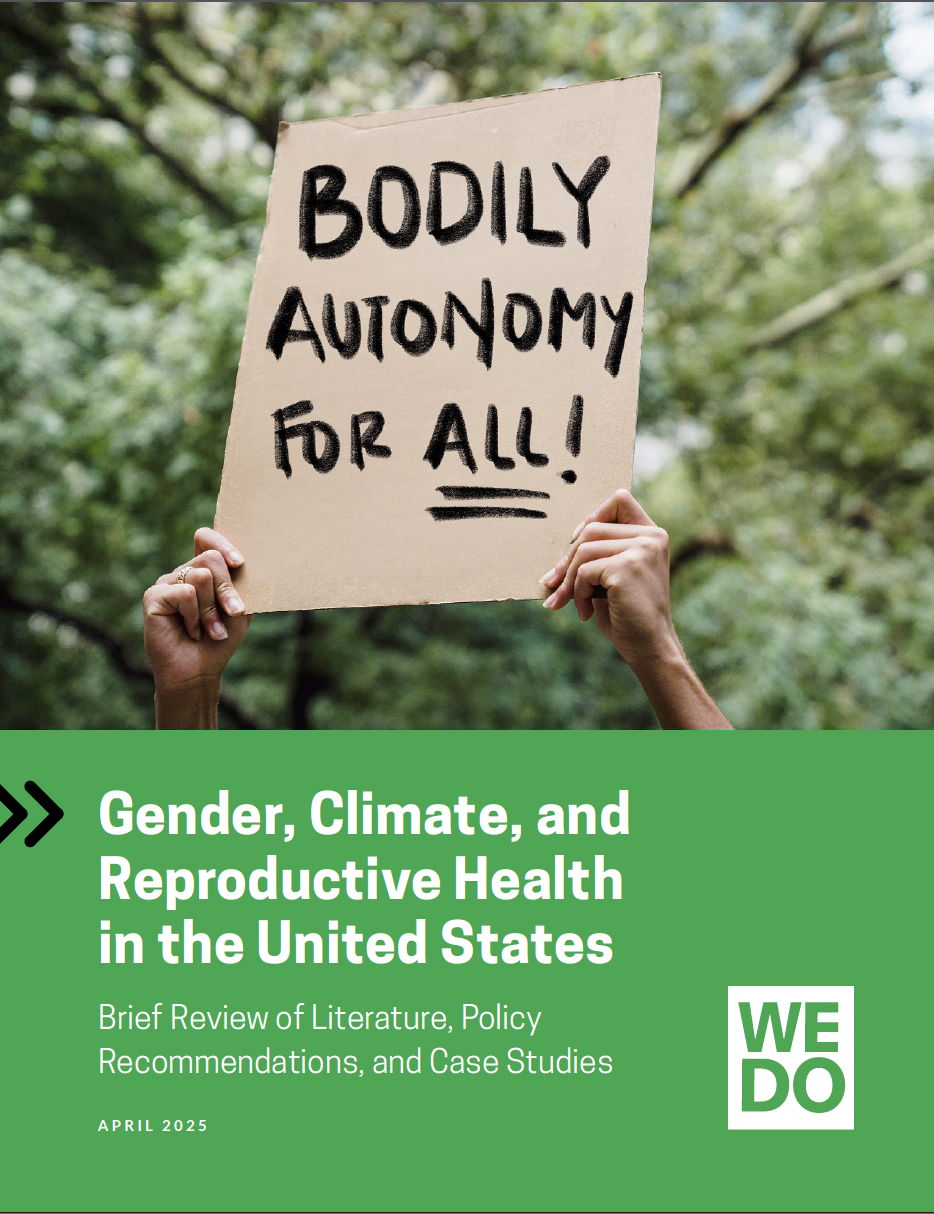WEDO is thrilled to launch a new brief on Gender, Climate, and Reproductive Health in the U.S., which includes an overview of existing literature on environment, climate, and reproductive health impacts; policy recommendations; and case studies of grassroots groups already advancing work at this intersection.
In a time when the attacks on bodily autonomy and climate justice are surging, as is the rollback of policies on environmental protections and reproductive rights, it is more critical than ever that we build a foundation for collective advocacy, organizing, and policy change on the understanding of how these issues interconnect.
While active and robust advocacy networks, research, and activists working on reproductive health and climate justice exist globally*, and at many local and state levels in the U.S., this brief seeks to add to the less robust set of national resources in the U.S. The brief focuses on the range of climate impacts across the country — wildfires, extreme heat, hurricanes, and beyond — and their specific reproductive health impacts. It also lifts up critical lessons learned from four organizations in the U.S. already driving forward work on reproductive health and climate justice, from training doulas on navigating wildfires to building climate curricula for birth workers to distributing reproductive and childcare services post-disaster.
“The connection between climate justice and bodily autonomy is a site of struggle for feminists globally, who have tirelessly highlighted the relationship between exploitation and human rights violations of land, territories, and bodily agency and autonomy. The safety, health, and well-being of our bodies are dependent on the health of the environment, at both local and planetary scales. In many important ways reproductive health is especially sensitive to the health of the environment and to environmental violence. From extreme heat’s impacts on pregnant people, to exposure to toxic chemicals and microplastics, to hurricane recovery presenting challenges to accessing reproductive care, the climate crisis is a crisis for reproductive health.”
We hope this brief is useful and generative to our collective work to illuminate the connections between reproductive health, environment, and climate justice, and to amplify feminist analysis, solutions, and recommendations in our response.
* Find a kickstart global resource list on reproductive health and climate justice on page 9 of the brief, and check out the Sexual and Reproductive Health and Rights and Climate Justice Coalition website for information on existing networks and research.




